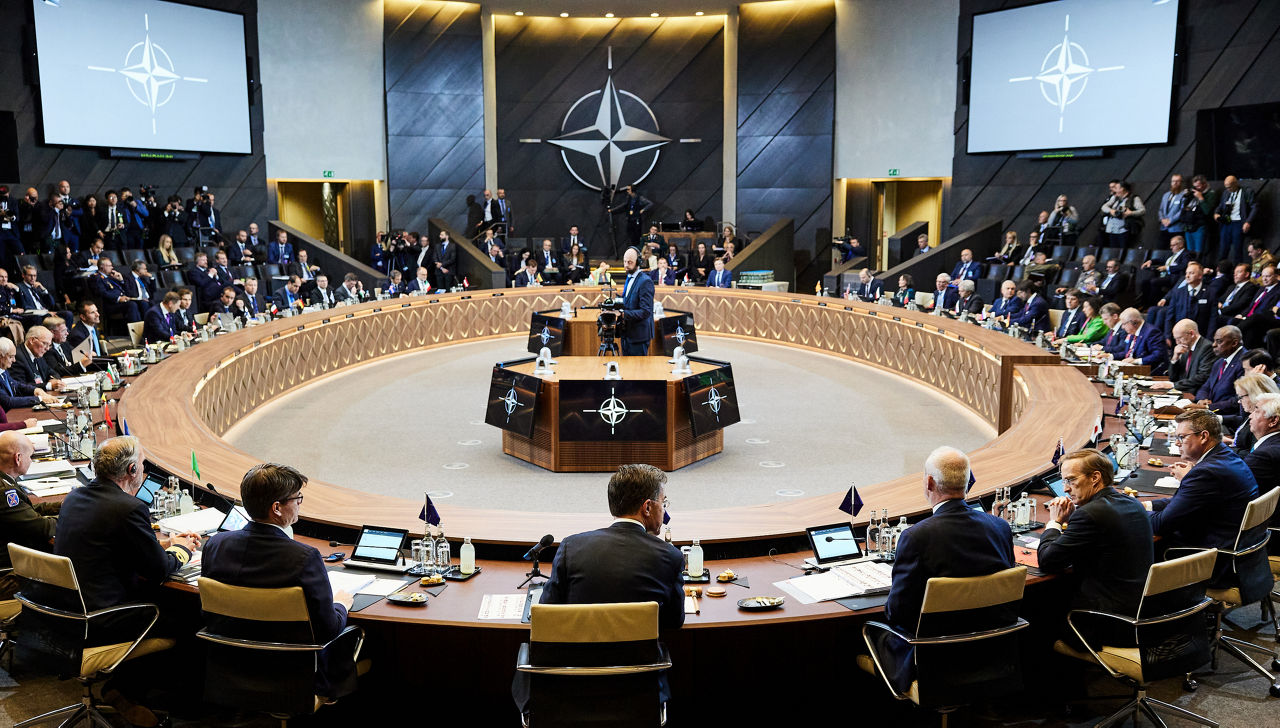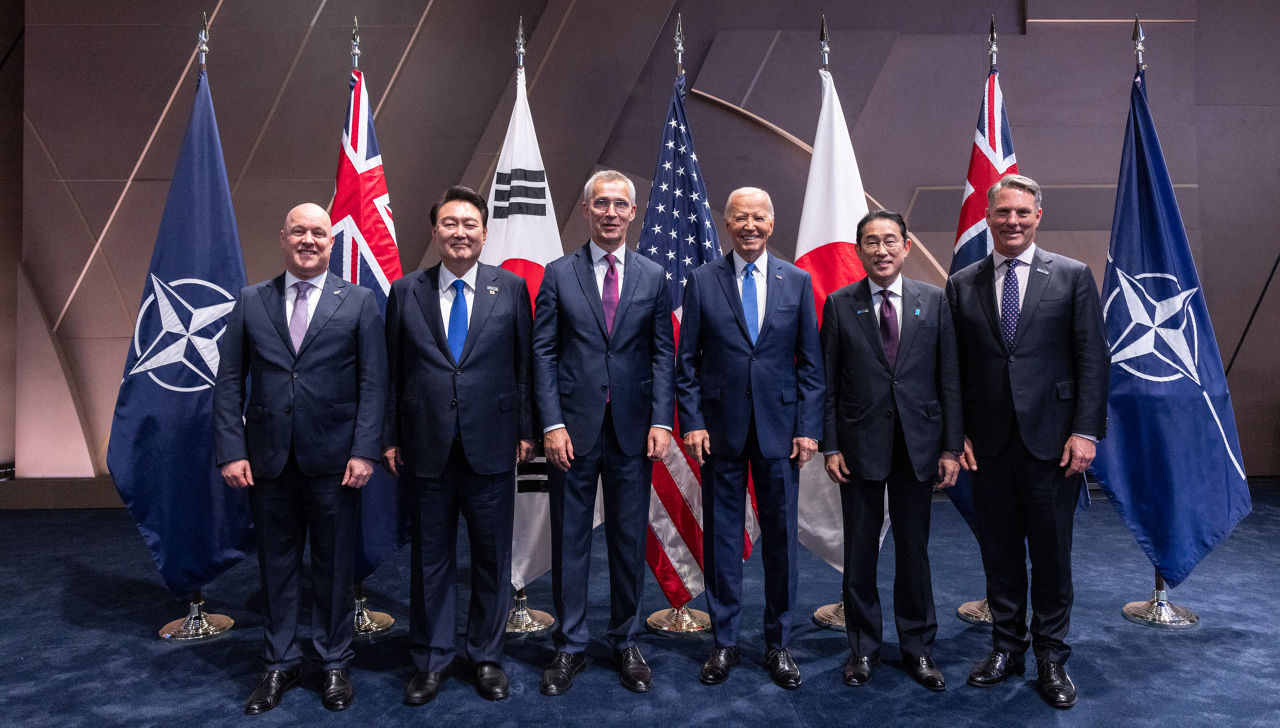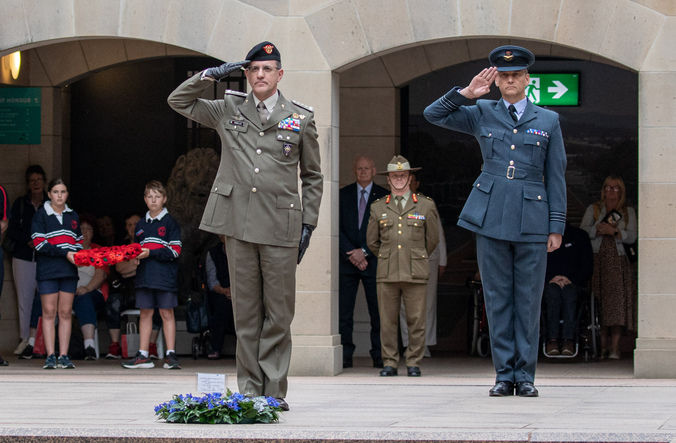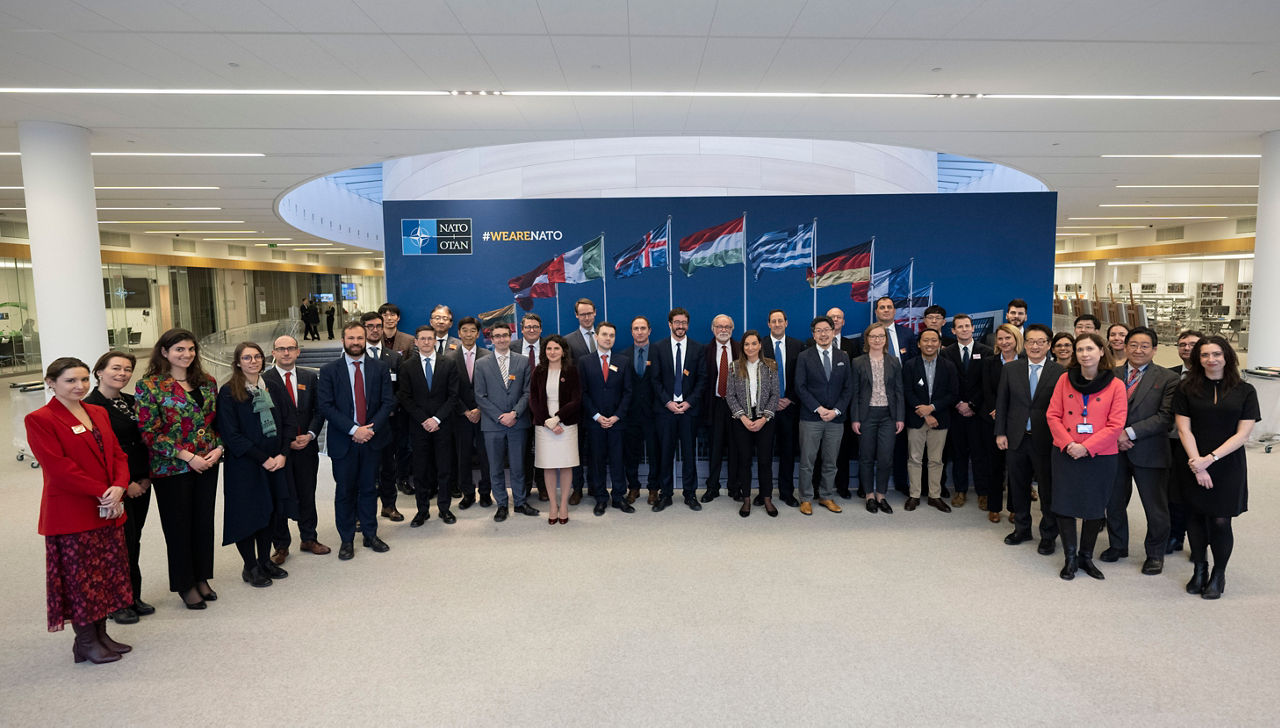Download NATO’s broadcast-quality video content free of charge

Log in
NATO MULTIMEDIA ACCOUNT
Access NATO’s broadcast-quality video content free of charge

Check your inbox and enter verification code
You have successfully created your account
From now on you can download videos from our website
Subscribe to our newsletter
If you would also like to subscribe to the newsletter and receive our latest updates, click on the button below.
Enter the email address you registered with and we will send you a code to reset your password.
Didn't receive a code? Send new Code
The password must be at least 12 characters long, no spaces, include upper/lowercase letters, numbers and symbols.
Your password has been updated
Click the button to return to the page you were on and log in with your new password.
Relations with Australia
Updated: 23 June 2025
NATO and Australia are strengthening relations to address shared security challenges such as cyber defence, hybrid threats and resilience, and to contribute to upholding the rules-based international order. They also cooperate as part of NATO’s broader relations with its partners in the Indo-Pacific region as, in today’s global security environment, security in the Euro-Atlantic and the Indo-Pacific is increasingly linked. Australia has made valuable contributions to NATO-led operations and missions for decades.
- Australia is one of NATO's partners in the Indo-Pacific region, together with Japan, the Republic of Korea and New Zealand. The Indo-Pacific is important for the Alliance, given that developments in that region directly affect Euro-Atlantic security.
- NATO and Australia have been engaged in dialogue and cooperation since 2005.
- In a joint political declaration in June 2012, NATO and Australia signalled their commitment to strengthening cooperation. From 2013, cooperation was taken forward through an Individual Partnership and Cooperation Programme. Currently, the relationship is guided by the NATO-Australia Individually Tailored Partnership Programme, which was agreed in January 2023.
- Priorities in NATO-Australia relations include upholding the rules-based international order, promoting mutual understanding of global security issues, enhancing interoperability between NATO and Australia, and engaging on issues of common interest, including cyber defence; countering hybrid threats; resilience; Women, Peace and Security; and new technologies.
- Cooperation is underpinned by regular high-level political dialogue, including an annual bilateral Strategic Dialogue. Since the very beginning of Russia’s full-scale invasion of Ukraine in 2022, Australia has been steadfast in supporting Ukraine’s right to self-defence. This includes contributions to NATO’s Comprehensive Assistance Package for Ukraine, participation in NATO Security Assistance and Training for Ukraine, as well as bilateral support.
Political dialogue
- At the 2021 NATO Summit in Brussels, Allies agreed to increase dialogue and practical cooperation between NATO and existing partners, including Australia as one of the partners in the Indo-Pacific. This commitment was reiterated in the NATO 2022 Strategic Concept, the Alliance’s core policy document.
- NATO works with its partners in the Indo-Pacific region against the backdrop of an increasingly complex global security environment, including Russia’s war of aggression against Ukraine, the provision of troops and weapons by North Korea in support of that war, and the deepening strategic partnership between China and Russia.
- In June 2022, the Prime Minister of Australia participated in the 2022 NATO Summit in Madrid together with the Leaders of other partners from the Indo-Pacific region (Japan, the Republic of Korea and New Zealand). In July 2023, the country participated in its second meeting at the level of Heads of State and Government, at the 2023 Vilnius Summit. In July 2024, Australia, together with other partners in the Indo-Pacific, participated in the NATO Summit in Washington, D.C., where practical cooperation between Allies and these partners was further enhanced, including through the launch of new flagship projects in the areas of support to Ukraine on military healthcare as well as cyber defence, countering disinformation, and technology such as artificial intelligence.
- Since 2022, Australia has regularly attended NATO Foreign Ministers’ meetings. This followed the country’s first-ever participation in a NATO ministerial meeting in December 2020. Australia participated for the first time in a NATO Defence Ministers’ meeting in October 2024, alongside Japan, the Republic of Korea and New Zealand.
- Australia also participates in meetings at NATO Headquarters between NATO Allies and the four partners in the Indo-Pacific region at the level of Ambassadors. Recent meetings have focused on cyber defence, technology and hybrid challenges.
Key areas of cooperation
Australia's cooperation with NATO is mutually beneficial and covers common security challenges, including:
- Building capabilities and interoperability: Australia is also one of four countries that have enhanced opportunities for dialogue and cooperation with the Allies (known as ‘Enhanced Opportunities Partners’) in recognition of their particularly significant contributions to NATO operations and other Alliance objectives. To deepen interoperability, Australia participates in committee work on issues such as logistics, information-sharing among operational partners, aviation, codification and armaments cooperation, where Australia works with NATO on capability development in the land, maritime and air domains. Australia is also regularly involved in NATO military exercises open to partners.
- Science & Technology: Since 2015, Australia has participated in NATO’s Science & Technology Organization (STO) Science & Technology (S&T) Enhanced Partnership, a programme designed to promote joint research and development in advanced S&T fields. Australia sits on the NATO Science and Technology Board, alongside other NATO partners Japan, the Republic of Korea, Switzerland and Ukraine. The Board provides strategic guidance on NATO’s collaborative scientific research and engages in joint research and development projects in areas such as medicine, sensing, cyber security, and propulsion and power systems.
- New technologies and energy security: In the framework of NATO’s Science for Peace and Security Programme, leading areas of practical cooperation with Australia include emerging and disruptive technologies, cyber and energy security.
- Trust Funds: Australia has contributed to a number of NATO Trust Funds, most recently the Ukraine Comprehensive Assistance Package (CAP) Trust Fund, supporting projects delivering medical equipment, counter-Uncrewed Aircraft Systems (UAS) technology and other urgent needs.
Support for NATO-led operations and missions
- Both NATO and Australia are members of the Global Coalition to Defeat ISIS. Australia also participates as one of the operational partners in NATO Mission Iraq, a non-combat advisory and capacity-building mission launched in July 2018 that aims to strengthen Iraqi security institutions and forces so that they are able to prevent the return of ISIS, fight terrorism and stabilise their country.
- Australia and NATO also work together to strengthen maritime security. Australia is an operational partner for NATO’s Operation Sea Guardian. The Australian navy also cooperated with NATO to fight piracy off the coast of Somalia as part of the past operation Ocean Shield.
- Over almost a decade, Australia was one of the largest non-NATO troop contributors to the International Security Assistance Force (ISAF), which completed its mission in 2014. As part of a Provincial Reconstruction Team in Uruzgan Province in southern Afghanistan, Australian personnel provided security and delivered reconstruction and community-based projects. Additionally, Australia’s Special Operations Task Group operated in direct support of ISAF elements in Uruzgan Province. From 2015 until spring 2021, Australia supported NATO’s follow-on Resolute Support Mission (RSM) to train, advise and assist the Afghan security forces and institutions. Australia was also a leading contributor to the Afghan National Army Trust Fund, having donated USD 680 million to the fund.






